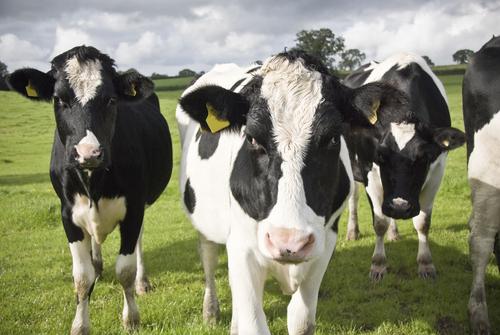
The dairy farming industry has featured frequently in the press for numerous years now. From falling milk prices to rising demand for quality, organic milk and the rise of veganism, dairy farming has faced unceasing pressure. Unsurprisingly, prior to the crisis point in 2015 where farmers protested against supermarket prices, a statement from the NFU suggested the amount of dairy farmers in the UK had halved in the last decade.
The current pandemic climate has incontestably sent shockwaves through the food and drink industry – and subsequently dairy production. The temporary closure of many workplaces, restaurants and catering companies caused dairy farmers to be left with excess quantities of milk – forced to dispose of it and therefore loose further income. It’s no surprise that so many farmers within this sector have diversified, scaled down or simply ceased altogether.
It’s also interesting to observe consumer trends and the power of influencers on social media in impacting buying decisions. With the rise of vegan, animal-free lifestyle choices and activism against the production of animal products it’s consequently impacted milk sales and dairy farming. This, coupled with the rise of substitutes such as almond, oat and cashew milk have caused dairy consumption to fall – Mintel research suggesting use of standard cows milk has fallen by 6% from 2018 to 2019 alone.
However, it’s encouraging to see that so much work is being done on many fronts within the dairy farming sector. From the work of the NFU in influencing parliamentary decisions and securing supply chains, innovations from companies abroad such as Lely and work of many organisations such as DairyUK on establishing a sustainable and strong dairy farming model, farmers are being listened to, supported and promoted within the consumer industry.
What is the future and how can we help?
Farming always has and always will be a volatile industry, which is often directly impacted by external factors the farmer has no control over. In juxtaposition to the growing trend for plant-based, vegan diets there is also a growing awareness of the importance of buying from sustainable supermarkets and companies who have high welfare standards. Here's where we as consumers can help. By purchasing from supermarkets where welfare and consideration for suppliers is at the forefront, we ensure we are supporting right principles that ultimately can directly help our producer - the farmer.
Companies who embody this organic, sustainable approach can market their products for better prices, therefore giving the dairy farmer more in their pocket. This, coupled with growing support networks and global efforts to secure sustainable supply chains is becoming significant in ensuring fairer prices, better welfare standards and ultimately a better future for dairy farmers.
Click here to take a look at our dairy health and chemicals range!
